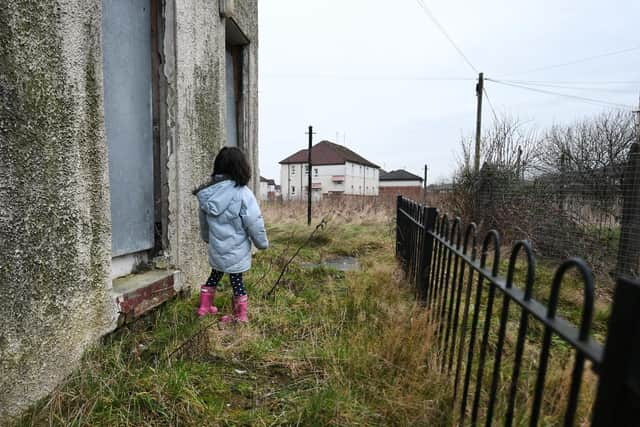New Falkirk mental health services for young people aim to stop crisis
and live on Freeview channel 276
And Falkirk Council now wants to make sure that all young people and their families know that help is available – whatever problems they are facing.
In particular, they want to make sure that young people know where they can find support before a crisis point is reached, members of Falkirk Council’s children, young people and education executive heard on Tuesday.
Advertisement
Hide AdAdvertisement
Hide AdFor many years, the local CAMHS (Children and Adolescents Mental Health Service) has been under fire for its long waiting times.


But CAMHS exists to help young people with serious mental health issues who require specialist intervention, while the new services aim to support children and young people before they reach a crisis point.
Thanks to Scottish Government funding, the council has organised a mixture of face-to-face and online support for those aged five through to 24-years-old, or 26 for care experienced young people.
Acting head of education, Rhona Jay, said the aim was to make sure “children and young people in Falkirk have equal access to the right support at the right time.”
Advertisement
Hide AdAdvertisement
Hide AdThere are three face-to-face services, including a health and wellbeing programme, being run by the charity Barnardo’s.
The other two services are for children and young people facing emotional distress and dealing with problems such as anxiety, depression, self-harm, substance misuse and trauma.
These are split between two age groups: a service for children aged between five and 12 – which was launched on Monday – is offered by the charity Aberlour.
Its highly trained staff are skilled at using techniques such as play therapy to help younger children cope with things such as bereavement and loss as well as offering parenting support.
Advertisement
Hide AdAdvertisement
Hide AdFDAMH (Falkirk’s mental health association) caters for the needs of young people aged 13 to 24 (26 if care experienced), offering vital one-to-one support.
In a presentation to the council committee, Gillian Campbell said the first service, launched in November, had been “inundated with referrals” from social work, education, GPs, speech and language and CAMHS itself.
Ms Campbell said: “With the best will in the world we could double or quadruple funding and workforce and we would still be busy – such is the unfortunate position we’re in, the whole of the country with mental health wellbeing.”
The new services were warmly welcomed by councillors from all political parties.
Advertisement
Hide AdAdvertisement
Hide AdSNP Councillor Fiona Collie said: “We don’t want children and young people to be needing more intensive support so I’m delighted to see that wide range, including face to face and digital.”
The initiative was also welcomed by the pupil representatives on the education committee, although they added that it was vital that the support was properly advertised to parents, pupils and teachers.
Larbert High pupil Charlotte Clem said: “At the moment, it’s not always clear where to get support – it’s not that the support isn’t there, it’s just that people aren’t sure how to access it.”
Parent representative Karen Procek also wanted assurances that families could navigate the services without going through the schools.
Advertisement
Hide AdAdvertisement
Hide Ad“Education could be the cause of many mental health issues, so that might not be a positive referral,” she said.